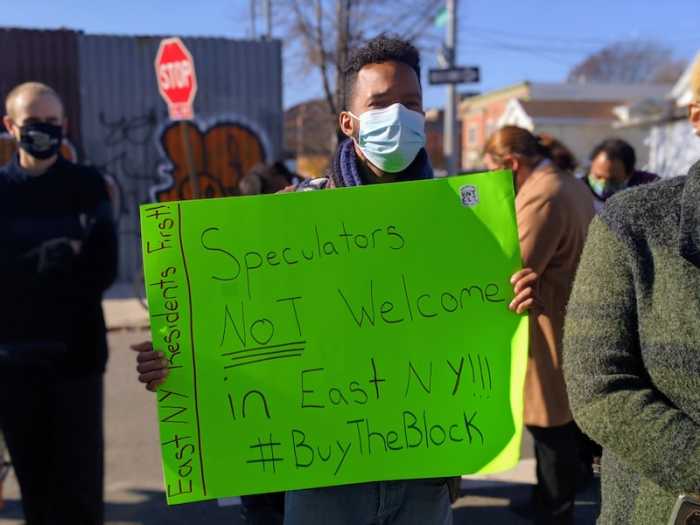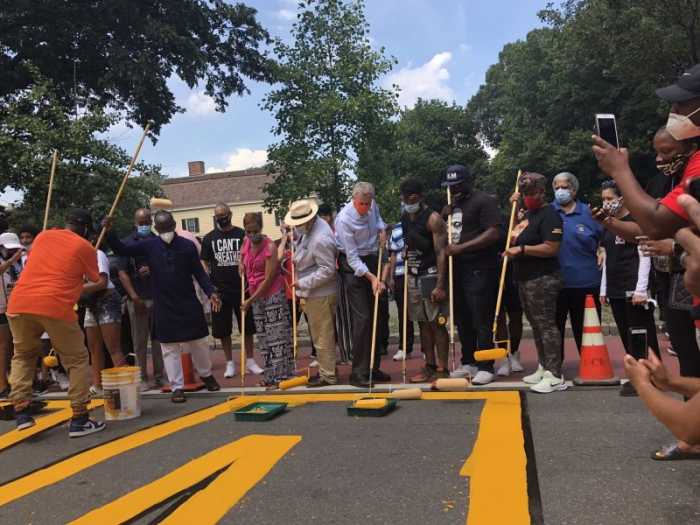De Blasio, Stringer Recommend Eliminating Interest on Property Tax Payments


The City’s Banking Commission, made up of Mayor Bill de Blasio, Department of Finance (DOF) Commissioner Jacques Jiha, and City Comptroller Scott Stringer, yesterday recommended that the city council create a new hardship exemption to eliminate interest on late payments for property taxes due in July for taxpayers whose property is assessed below $250,000 and who have a financial hardship as a result of COVID-19.
“This pandemic has reaffirmed how difficult it is to be a working person in this country,” said de Blasio. “We are doing everything in our power to help families who are struggling, and I hope these measures will provide some relief to New Yorkers in need.”
“The COVID-19 crisis has created an unprecedented situation for millions of New Yorkers by upending their lives and creating vast income instability. To an unemployed New Yorker, the potential forgiveness of late payments may be the difference between paying back their taxes and facing foreclosure. We need to use every tool at our disposal to provide compassionate relief,” said Stringer.
The recommendations now go to the New York City Council for their action and acceptance. The hardship exemption must be enacted through Local Law; specific details about qualifications for property owners will come through the legislative process.
The DOF currently defines “hardship” as involving the death or serious illness of a property’s owner or immediate family member, loss of income, or enrollment in the Department of Environmental Protection’s Water Debt Assistance Program. Taxpayers eligible for the new hardship exemption will be asked to submit appropriate documentation to the Department of Finance.
Meng Bill Helps Nursing Home Residents Virtually Connect
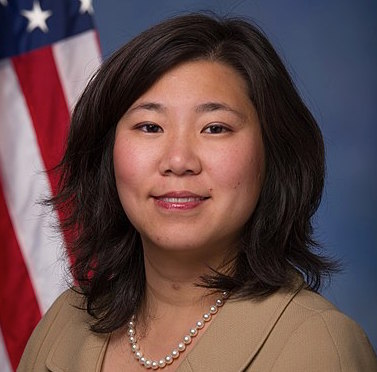
U.S. Rep. Grace Meng (D-Bayside, Flushing, Forest Hills, Fresh Meadows, Glendale, Kew Gardens, Maspeth, Middle Village, Rego Park) yesterday announced that she cosponsored legislation which seeks to help those in nursing homes electronically connect with family members and doctors during the coronavirus crisis.
The bipartisan “Advancing Connectivity during the Coronavirus to Ensure Support for Seniors (ACCESS) Act” would protect these vulnerable populations from risking exposure to COVID-19 by increasing their access to remote health care, and their ability to connect with loved ones and caregivers online.
“We have all seen how nursing homes have been hard hit by the COVID-19 pandemic, and the tragic deaths that have occurred at these facilities particularly here in New York,” said Meng. “We must protect the health and safety of our elderly population but physical distancing should not force them to be cut off from loved ones, and risk social isolation. This legislation would help ensure this does not happen, and that nursing homes residents can remain in touch with their family members and health care providers.”
Specifically, the ACCESS Act would:
- Authorize an emergency supplemental appropriation of $50 million for the Department of Health and Human Services’ (HHS) Telehealth Resource Center to assist nursing facilities receiving funding through Medicare or Medicaid in expanding their use of telehealth services;
- Require the Secretary of HHS to share recommendations on additional ways to improve access to telehealth services in nursing facilities and temporarily designated nursing facilities during the pandemic; and
- Establish a grant program authorizing HHS to award nursing facilities grants to enable residents to participate in “virtual visits” with loved ones while the health risk of in-person visits remains high during the pandemic.
Constantinides Lauds Protected Bike Lane Along Crescent Street
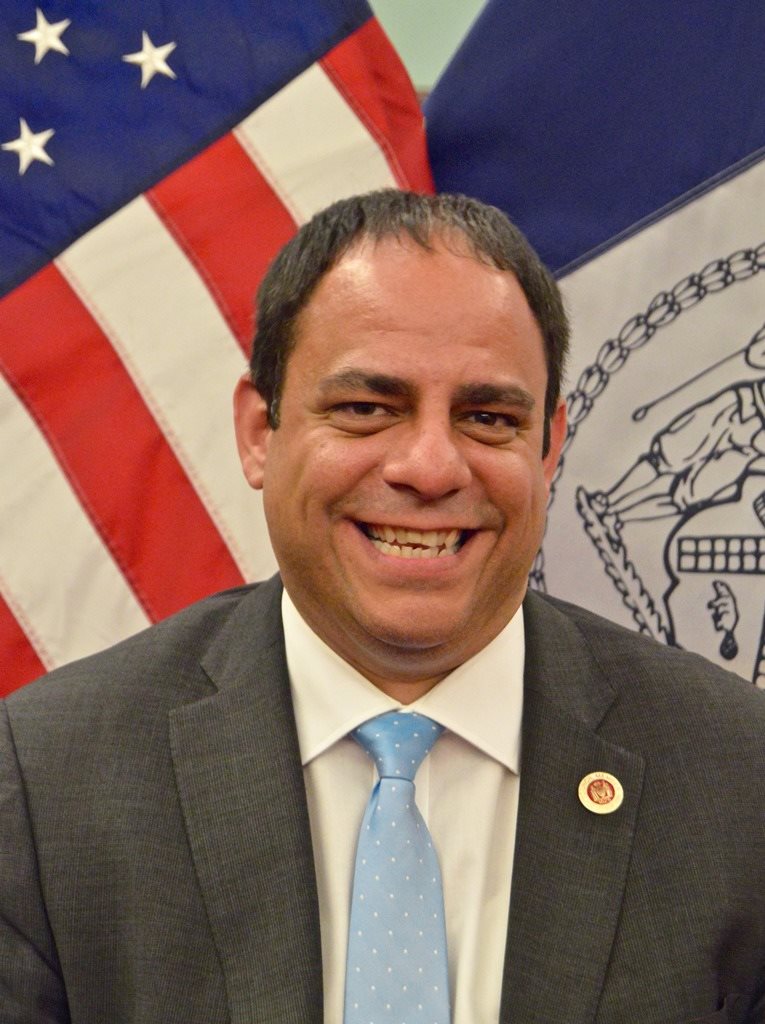
City Council Member Council Member Costa Constantinides (D-Astoria, parts of Woodside, East Elmhurst, Jackson Heights) yesterday lauded Mayor de Blasio’s announcement that work would begin to build a protected bike lane along Crescent Street.
“Though Crescent Street deserved this protected bike lane long before this pandemic shut down New York City, I am thrilled to see its construction finally begin. Going to work shouldn’t be a daily life-or-death scenario, but sadly it too often is. Those who can cycle deserve a safe north-to-south route, from the Triboro Bridge to the Queensboro Bridge,” said Constantinides.
“My office is ready to work with the Department of Transportation to get this right, especially as later phases move north and interact with Mt. Sinai Queens. I hope this is just the first step in creating a holistic transit network for western Queens,” he added.
Constantinides first supported a protected bike lane along Crescent Street in September, which would provide a north-to-south connection between Astoria and Long Island City.
Sanders Hosts Series of Coronavirus Virtual Community Conversations
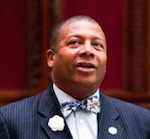
State Sen. James Sanders Jr. (D-Richmond Hill, South Ozone Park, Jamaica, Rochdale Village, Rosedale, parts of Far Rockaway) announced he is hosting a series of live, interactive, virtual community conversations on Facebook, each focusing on a different part of his district with the topic being the Coronavirus.
The conversations will also see Sanders providing updates as well as answering constituent questions and addressing their concerns. Stay safe and still be a part of the conversation in the move to a virtual format in light of this global pandemic.
Times and neighborhoods are listed below.
Wednesday, May 13, 2020 – 5:30 p.m. – South Jamaica, South Ozone Park & Richmond Hill
Thursday, May 14, 2020 – 4 p.m. – Springfield Gardens, Rosedale & Rochdale Village
Friday, May 15, 2020 – 4 p.m. – The Rockaways
Go to Facebook.com/StateSenatorJamesSandersJr/. Make sure to follow Senator Sanders at this link to receive reminder notifications of when he will be going live.
Van Bramer Lauds Open Streets in Western Queens
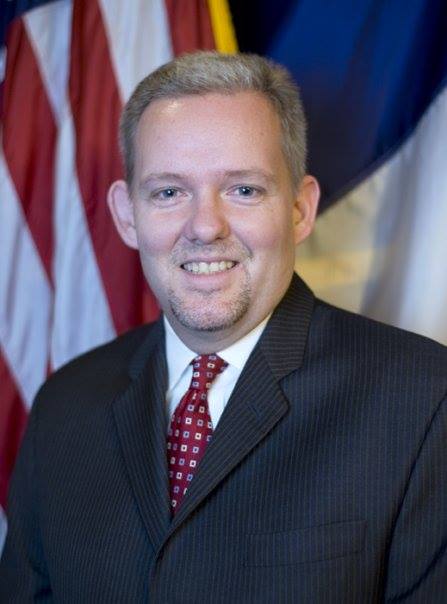
City Councilmember Jimmy Van Bramer (D-Astoria, Long Island City, Sunnyside, Woodside) yesterday lauded Mayor Bill de Blasio’s decision to open many streets in Western Queens to pedestrians as part of the Open Streets Program.
The program is relatively straightforward with main details as follows:
- Between 8am and 8pm
- Streets that are part of the program will be closed to through traffic
- Deliveries and local traffic will be the only vehicles allowed
- Vehicles will have a speed limit of 5 mph
- The NYPD will be enforcing the program
Previously, only Court Square West in the program. The Mayor will open the following streets to the Open Streets Program:
- 46th Street b/w Queens Blvd & Greenpoint
- Skillman Ave b/w 39th Pl and 43rd street
- 39th Ave between Woodside Ave & Barnett
- 5th Street between 46th Ave & 49th Ave
- 27th Street b/w Hunter Street and Queens Plaza South
“These street openings will allow for pedestrians, dog walkers and residents will be able to walk in the streets without having to jump out of the way of a fellow pedestrian without a mask. It will give people a little bit of extra space to stretch out,” wrote Van Bramer in his e-newsletter.
“Additionally, the Mayor announced today that there will be a protected bike lane on Crescent Ave between Queens Plaza North and Hoyt Ave. in Astoria. This is a major victory for our everyone who cares about safer streets and our environment. Furthermore, the lane will open with temporary barriers and lanes between Queens Plaza North and 40th Avenue in the next two weeks,” he added.
Meeks Bill Prohibits Banks from Garnishing Stimulus Checks
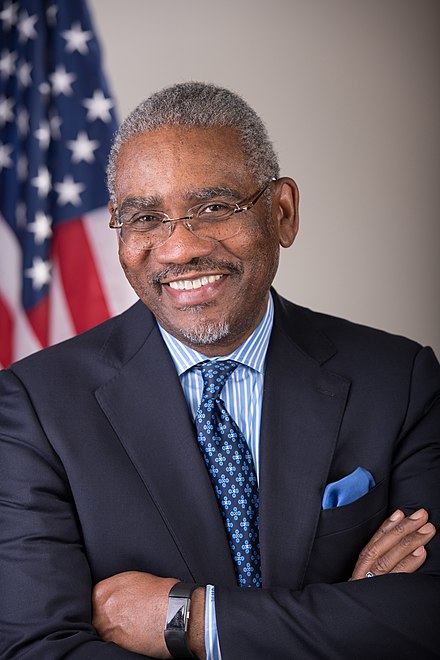
U.S. Reps. Gregory W. Meeks (D- Jamaica, Laurelton, Rosedale, Cambria Heights, Saint Albans, Springfield Gardens, The Rockaways, JFK Airport) and Ayanna Pressley (D-MA) yesterday introduced legislation which protects stimulus checks from garnishment and fees.
The Protect our Checks Act of 2020 ensures that stimulus payments authorized by Congress in the CARES Act, in response to the devastating economic impact of the COVID-19 pandemic, cannot be garnished to settle debts or other payments.
Text of the Protect our Checks Act of 2020 was included in the HEROES Act, unveiled by Speakers Pelosi and House Democratic leadership, as the next phase in congressional support for American families and frontline workers.
The introduction of this legislation is a follow-up to a letter that Meeks and Pressley sent to federal finance-related agencies asking them to immediately issue regulation or guidance to restrict financial institutions from seizing economic impact payments to collect on outstanding debts, such as overdraft fees.
“I am proud that the Protect our Checks Act of 2020 was incorporated into House Democrats’ next phase of support for American families who continue to suffer from the devastating health and economic impacts of the COVID-19 pandemic. The Administration never should have allowed the garnishment of stimulus payments that congress authorized to provide financial support for American families at a time of greatest financial need and vulnerability,” said Meeks.
“American families cannot afford to have these stimulus payments garnished as they struggle to pay rent and utilities, keep food on the table, and pay healthcare bills,” he added.



